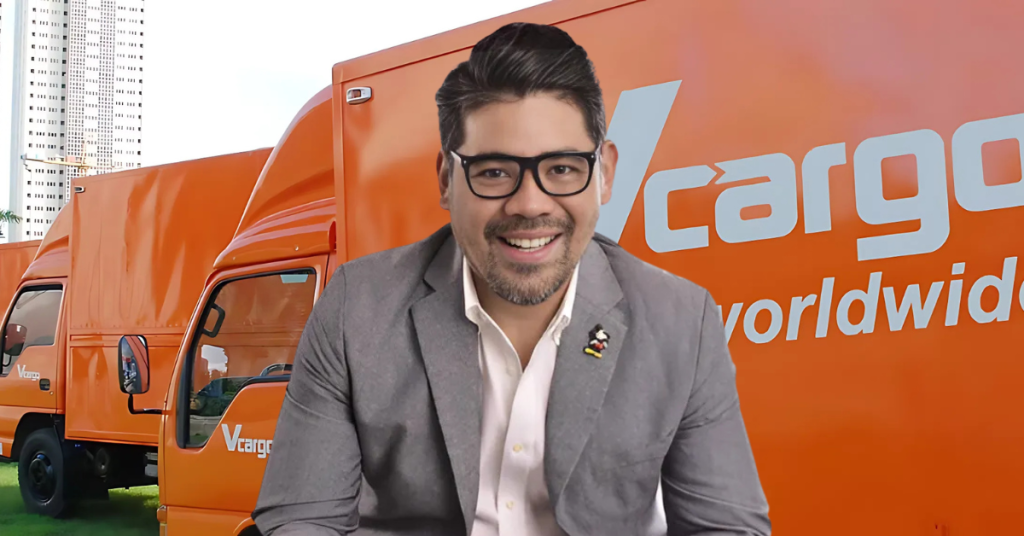Before Paulo Tibig became one of the country’s most respected logistics entrepreneurs, he was just figuring things out—trying different business ideas, learning from each one, and building with what he had. One of his earliest ventures? A laundry shop in U-Belt, launched with his then-girlfriend, now wife.
“Ang unang tinayo ko laundry business, kami ng girlfriend ko pa non ‘yong wife ko,” Paulo shared in an interview. At that time, both of them had already turned their backs on promising corporate careers. Paulo had worked in finance and market development, while his partner was in branding at a multinational firm. “Ayaw niya na rin ng corporate… Sabi ko, sige start tayo ng laundry.”
The laundry business worked well enough. It wasn’t full-scale, but it allowed them to learn the ropes of running a business together. “Laundry naman kasi may tao ka naman dyan eh, hindi naman full scale laundry ‘yon,” he said. But what came next was something that would change their trajectory completely.
As they navigated their laundry operations and observed supply chain behavior, they started noticing a recurring problem. “Lagi niyang sinasabi, problema, problema, problema,” Paulo recalled, referring to the frustrations his then-girlfriend would share from her work in brand management. Promotional campaigns often required bundling freebies with products—like attaching a free item to a washing machine or shampoo bottle—but the actual logistics execution was messy, inefficient, and unreliable.
“Kahit messenger ako dati, sabi ko, why not develop a certain solution that will answer the need of that particular problem?” Paulo said. That simple insight became the seed of what would eventually become V Cargo Worldwide.
In 1999, they officially launched the company, starting with bundle packing solutions for major consumer brands. “Kami ‘yong nagbubuo ng mga promotional packs. Hindi pa uso noon ang automation. Manual pa lahat.” Paulo recalled. But as demand grew, they saw an opportunity to offer more—especially when brands began asking them to handle not just bundling, but the delivery too.
That led to the next big pivot: freight services.
“Gagawin namin, iba-bundle namin, tapos iba pa ‘yong pipick-up. Magha-hire kami ng trucker, dadalhin namin sa forwarder… Sabi ng kliyente, ‘Why not gawin mo na lang isahan?’” Paulo recounted. That request opened the door to end-to-end logistics—bundling, freight, and fulfillment—all under one roof.
There was just one challenge: they had no truck. And no capital. So Paulo turned to an unlikely source—his future mother-in-law. “Kinapalan ko mukha ko, brad. Nangutang ako doon sa nanay ng girlfriend ko,” he said. With the ₱300,000 loan, they bought a secondhand four-wheeler truck and began their freight operations. “Hanggang ngayon buhay pa ‘yong truck. Pang-museum na talaga.”
From there, the business grew rapidly. They expanded from Luzon delivery routes to air and sea freight, partnering with major airlines and cargo handlers. “’Yong naging professor ko sa PATS naging VP ng cargo ng Cebu Pacific… Lumapit ako, sabi ko, ‘Sir, tulungan mo naman ako.’” That connection opened doors to broader logistics services, eventually transforming V Cargo into a full-service supply chain solutions company.
At its core, the business grew by addressing overlooked pain points and building operational excellence. “Ang kliyente, they can always be at your mercy. Pumalpak ka ngayon, bukas puwede kang palitan.” Paulo stressed. “It’s easy to sell service if your operations is good—very good.”
What started as a laundry shop became one of the Philippines’ most agile logistics brands—not because of a grand plan, but because two people listened, observed, and took action when others ignored the problem. Their journey is proof that the biggest opportunities often start with the simplest question: “What’s not working—and how can we fix it?”
Some quotes in this article are from an interview originally conducted for Entrepreneur by Henry Ong and may not have been previously published.
![]()



